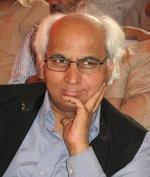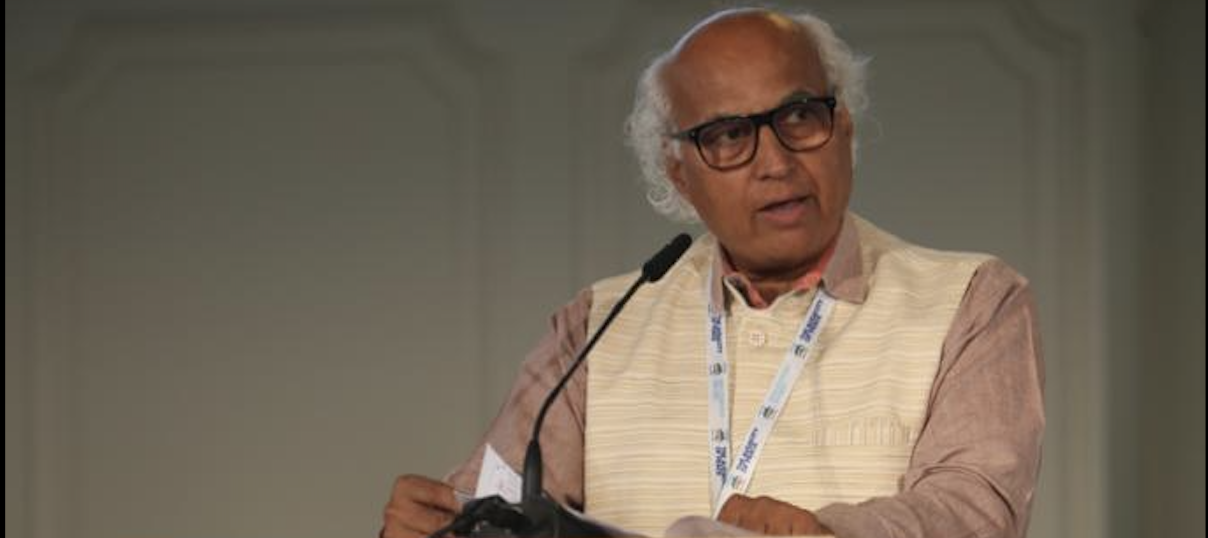
Dear and Esteemed Friends representing the diverse religions, cultures and humanistic traditions around the world,
I thank the Community of Sant’Egidio for inviting me to participate in this important conference.
It’s important because it’s taking place in Berlin.
The fall of the Berlin Wall in 1989 became a source of hope and inspiration for a world grown weary of enmity, violence and destruction.
There was also a corresponding hope that global cooperation, combined with the rapidly increasing productive power of science and technology, would spur inclusive global development.
And that globalisation would help in removing the scourge of poverty, hunger and disease that has degraded the lives of millions of our sisters and brothers around the world.
Sadly, those hopes were belied by the wars in Afghanistan, Iraq, Syria, Libya and Yemen, and many conflicts in Africa.
Europe seemed immune to such conflicts, but the ongoing Russia-Ukraine war has belied this myth.
Furthermore, the spectre of a new Cold War between the United States of America and China is now looming large.
Asia, where I come from, seemed safe from the poisonous logic of military blocks, and the wasteful arms race it produces.
But now the global weapons industry is vigorously pushing the idea of an Asian NATO to contain the alleged threat from China.
Dear Friends,
What all this tells us is that there is some vital wisdom missing in the world we live in.
That missing wisdom is encapsulated in the theme of this session ─ ‘The Culture of Living Together’.
Two questions arise.
One: Why is the ‘Culture of Living Together’ missing?
And two: What should all of us together do to promote it?
An examination of these two questions must begin with an understanding of what we mean by ‘Culture’.
Culture is a word most widely used but, sadly, understood at a very shallow level.
Culture is what humanises the human species.
Culture is what elevates and transforms the human species from biological evolution to civilizational and moral evolution.
The test of morality and civilisation is the willingness, ability and action to distinguish right from wrong; good from evil; just from unjust; creation from destruction; care from indifference; love from hatred; and nonviolence from violence in its multiple manifestations.
War, which is the grossest and ugliest form of violence, also signifies that the human race is afflicted with an evolutionary disability.
This disability appears in the form of mankind’s stunted growth of its faculty of love, which is indispensable for the art and culture of living together.
Mahatma Gandhi said something profound when he explained love as the active form of nonviolence and peace-building.
However, this evolutionary disability to love one another is not fundamental, permanent and incurable.
In the course of our evolution as a unique species, in the course of civilising ourselves, we humans have created institutions and belief systems that are rooted in the soil of love, nurtured with the water of care, and are protected by the hands of cooperation and solidarity.
Two of the best examples of such humanising institutions are Family and Community. The ‘Art and Culture of Living Together’ is inspiringly visible and active in these institutions.
However, so far, human communities have not adequately developed this culture of harmoniously living together in other settings that require them to accept diversities of religion, race, ethnicity, nationality, class and caste.
This has happened because of ignorance, prejudice and insecurity borne out of lack of mutual understanding, empathy and trust.
Insecurity is also fomented by fears generated by hate propaganda by manipulative political and governance establishments.
There is another factor that impairs the culture of living together.
Our systems of economy, with partial exceptions, perpetuate disparities; favour unhealthy competition over cooperation; compel people to spend their lives in the coils of consumerism; and are ill-suited to promote harmony between man and man, man and nature.
My fellow peace-builders,
How can we change this reality and advance the culture of living together, locally as well as globally?
I would like to briefly present five action points.
First: The world we live in is the most inter-dependent and inter-connected in all of human history.
Yet, our hearts and minds are not adequately connected.
We have erected many invisible walls that separate nations and communities, especially faith-based communities.
Therefore, we must uncompromisingly break all the ‘Berlin Walls’ that divide humanity with notions of exclusivism, self-sufficiency, superiority, supremacy and hegemony based on religion, ethnicity or nationality.
Second: The idea of exclusive and non-negotiable national sovereignty has become incompatible with the demands of cooperation in our inter-connected and inter-dependent world.
Without maximum international cooperation, it is impossible for the human race to find solutions to either the climate crisis or the multiple crises impeding human development.
Third: Our common human identity must take precedence over all our other identities. This was proclaimed by the Vedas, the sacred scripture of Hinduism, over 5,000 years ago. ‘Vasudhaiva Kutumbakam’, said the Rig Veda. It means ─ ‘The Entire World Is One Single Family’.
This recognition that we all belong to one common Human Family precludes any justification for war, violence or even indifference.
Therefore, the world must heed the call of His Holiness Pope Francis, who has asked the international community to replace the ‘globalisation of indifference’ with the ‘globalisation of solidarity and charity’.
Fourth: Limiting national sovereignty, and building strong bonds of charity and solidarity within the human family, inevitably point to the need for strengthening global governance that protects justice and human dignity for every human being everywhere.
The best way to strengthen global governance is by strengthening the one apex organisation we already have ─ the United Nations.
The UN was created out of the ashes of the two World Wars.
Weak and ineffective though it may be, it is the only institution that commands recognition and respect globally.
However, the United Nations is in urgent need of radical restructuring and democratisation so that it can respond to the needs of the 21st Century. Bigger nations have a bigger responsibility to ensure this.
My fifth and last idea is this. Once we recognise that we all belong to one common and indivisible Global Human Family, it follows that the UN must declare any war of aggression as illegitimate and a crime against humanity.
It also follows that all disputes among nations must be resolved through peaceful and non-military means of dialogue and, therefore, all industries engaged in weapons production ─ especially, nuclear weapons and other weapons of mass destruction ─ must be dismantled.
Simultaneously, the attention, resources and energies of the international community must be redirected solely towards removing the developmental disparities around the world, improving the living conditions of all the marginalised communities, and protecting the precious and fragile biodiversity on Planet Earth from the looming Climate Calamity.
Let all of us pledge, in this historic and highly cultured city of Berlin, to work towards enriching this ‘Culture of Living Together’.
Om Shanti! Shanti! Shanti!
May Peace prevail and triumph all over the world!
